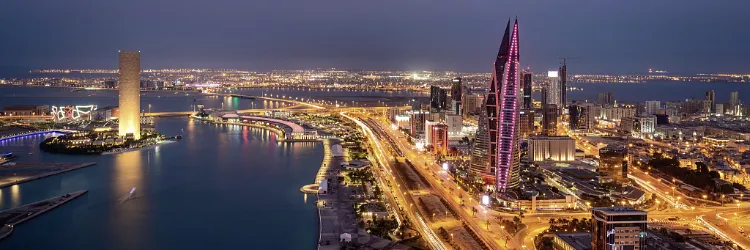Bahrain introduces Domestic Minimum Top-up Tax for multinationals

Bahrain took a big leap towards meeting its global tax compliance commitments with the publication of Decree-Law No. (11) of 2024 on the Taxation of Multinational Enterprises on 1 September.
The Decree-Law will introduce a Domestic Minimum Top-up Tax (DMTT) of 15% on the profits of Bahraini constituent entities of large Multinational Enterprises (MNE) for financial years starting on or after 1 January 2025.
As a member of the OECD/G20 Inclusive Framework on Base Erosion and Profit Shifting, Bahrain is a signatory to the OECD’s ‘Two-Pillar’ solution to address the tax challenges arising from the digitalisation of the economy.
Pillar 2 of this solution, known as the Global Base Erosion (GloBE) rules, requires MNEs with consolidated annual revenues of more than €750 million to pay a minimum 15% tax on its profits in each jurisdiction in which it operates.
The introduction of a DMTT in Bahrain will provide a partial adoption of the GloBE rules and is a demonstration of the Kingdom’s commitment to follow international best practices. It is the first GCC member state to do so, which will add to Bahrain’s attractiveness and reputation as a reliable and competitive place for international business.
This is a major shift in the tax landscape of Bahrain. The DMTT allows Bahrain to retain the right to tax Bahrain-sourced income and to exclude foreign governments from collecting tax on such income. It will represent Bahrain’s first general tax on the profits of corporations. Currently, only companies engaged in oil and gas activities are subject to a specific income tax.
The DMTT is calculated on the financial net accounting income of MNEs, adjusted according to international accounting standards to meet the global minimum tax of 15%. This ensures the tax base reflects the economic activities and profits of MNEs in Bahrain.
To comply with the DMTT, constituent entities – including companies, branches and permanent establishments – of in-scope MNEs situated in Bahrain will have to register with Bahrain’s National Bureau for Revenue (NBR). Once registered, MNEs will have to follow a structured tax payment process, which includes advance payments from 2025.
The Law provides for an exclusion from the share of profits subject to the top-up tax of an amount based on the tangible assets and payroll costs as indicators of substance of the Bahraini constituent entities. This is known as the Substance Based Income Exclusion (SBIE).
The Law also establishes a transitional ‘safe harbour’, as well certain exclusions from the application of the top-up tax in Bahrain for constituent entities that are part of an MNE that is in its initial phase of international activity, subject to certain conditions in the Law and the forthcoming regulations.
The DMTT of constituent entities located in Bahrain will be reduced to zero if the MNE has constituent entities in no more than six jurisdictions and the sum of net book value of tangible assets of all constituent entities located in all jurisdictions, other than the jurisdiction in which the MNE has the highest value of tangible assets, does not exceed €50 million for a period of five years after the first day of the first fiscal year when the MNE entered in scope.
The Law also introduces special provisions on the process and the timelines of handling tax disputes, including the proposed formation of a Tax Objection Committee to have jurisdiction over objections between taxpayers and the National Bureau of Revenue (NBR).
Businesses should consider whether they are in scope of the DMTT and perform appropriate impact assessments. With our deep understanding of the Bahrain market and strong connections with government and regulatory bodies, Sovereign Bahrain is ideally positioned to guide your business through the new tax regulations. For official tax advice, a regulated tax firm is recommended. If you need assistance in Bahrain please contact Anas Al Adawi, Sales Director at Sovereign Bahrain, below.
